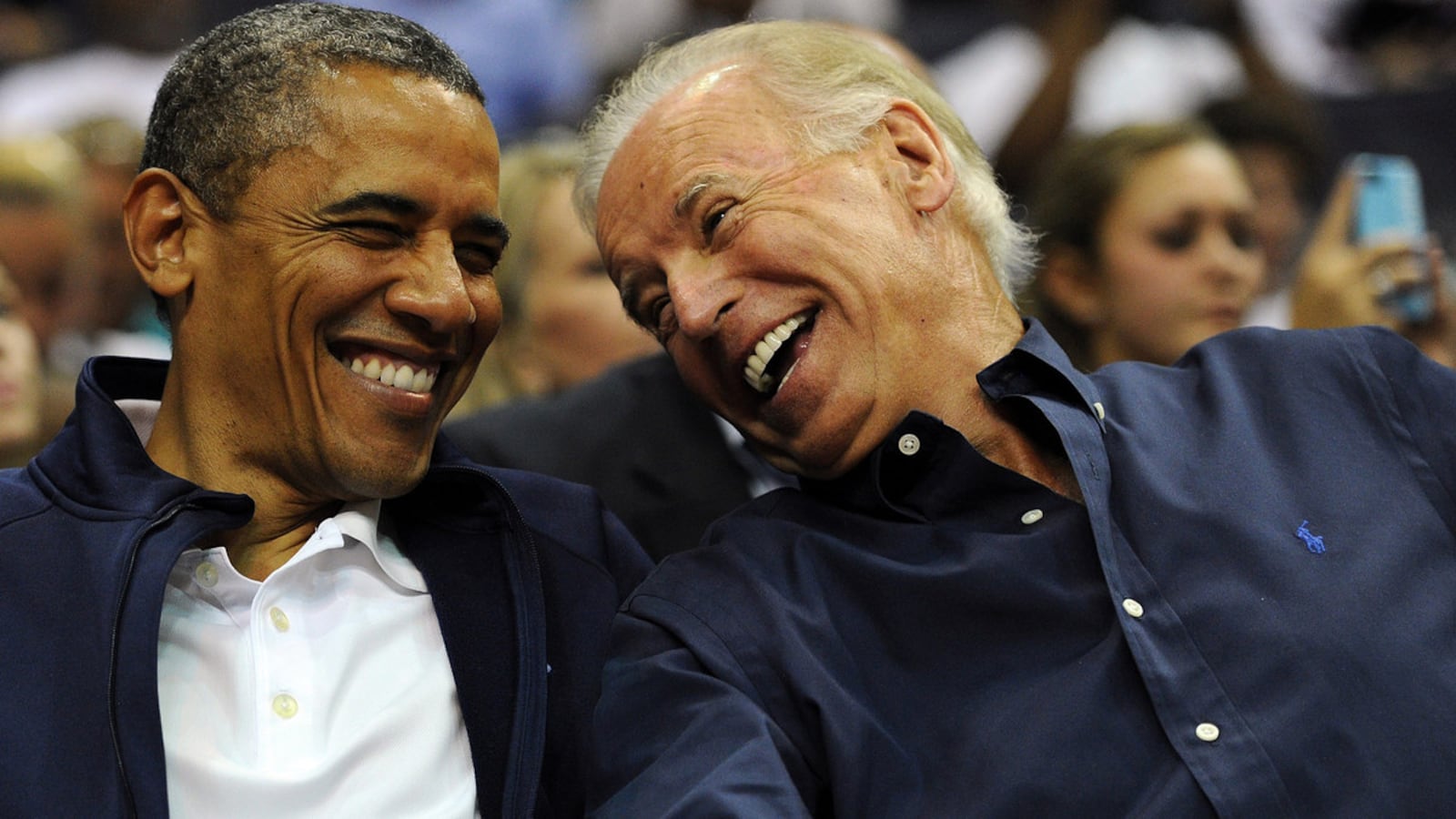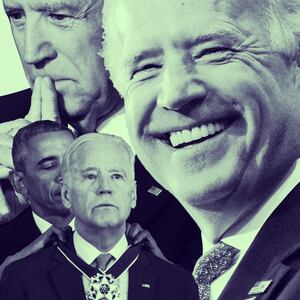From the beginning of the presidential race, I have been fascinated with Joe Biden’s campaign, but not because of his inevitable gaffes, appeal to white Midwestern voters, “electability,” or even his policies. Biden’s campaign has been amazing to watch because the unofficial, unspoken ethos from day one has been, “I’m best friends with the black president you love. Give me a shot.”
Biden is not generally thought of as terribly progressive of course and, on paper, he’s not. But seeing a white man campaign for, and possibly win, the highest office in the land based mostly on his friendship with a black man and their shared accomplishments may be one of the most progressive things I have ever seen.
The fact that I have labelled Biden’s campaign as “progressive” has befuddled my friends and will probably inflame social media. But I do not see how the ethos of Biden’s campaign could be anything but progressive. Not only is it obviously progress, but this is the type of progress that Americans who aren’t racist love to see.
Americans love the narrative of the black and white male partnership with a redemptive arc. Normally, the trope consists of a crazy, wild, and/or racist white male who becomes a better person through his friendship with a black man. Think about the Lethal Weapon movie series. Mel Gibson’s character, Martin Riggs, is crazy and troubled, and his partnership with Danny Glover’s character, Roger Murtaugh, who is a mature and stable family man, helps Riggs become a better man.
The hit television show Miami Vice was also a celebration of the black-and-white male partnership. There, the white guy, Sonny Crockett (Don Johnson), was the main protagonist, but the black ex-New Yorker Rico Tubbs (Philip Michael Thomas) was an indispensable partner who at times served as Sonny’s conscience. The 2018 film Green Book, which won the Oscar for Best Picture, also employs this trope, and so do countless other films.
Many of Sidney Poitier’s films from the 1950s and ’60s speak to America’s need for a black-and-white redemption narrative. In the Heat of the Night (1967) is obvious here, as Poitier teaches small-town Southern sheriff Rod Steiger a few things about race in America; less obviously, go watch The Defiant Ones (1960), in which Poitier co-stars with Tony Curtis. In both cases, the black man provides the moral frame, and the white man, hopefully, learns something.
The problem with this cinematic narrative has been that it never matched up with the reality of America. These films represented images of the America that white Americans say they want to see but do very little to create.
However, as America became more integrated, authentic friendships across our racial divide become more possible. Sports has taken the lead here. The rivalry and friendship of Magic Johnson and Larry Bird revitalized the NBA. John Stockton and Karl Malone became a Hall of Fame duo for the Utah Jazz. Even today, NBA fans celebrate that Alex Caruso is an integrated part of the Los Angeles Lakers, and not just a boring, isolated white NBA player who can only shoot threes.
Obama and Biden represent the pinnacle of the black-and-white male bromance. During Donald Trump’s presidency, author Andrew Shaffer even reimagined the Obama-Biden bromance and published two satirical mystery novels, Hope Rides Again and Hope Never Dies, where Obama and Biden team up to fight crime and solve mysteries. They became another Lethal Weapon, and both books reached The New York Times’ bestseller list.
America loves this narrative, but Biden’s campaign has taken it to a new level. Biden’s all by himself. His partner in crime can’t fight this fight with him, but Biden is still campaigning as one half of a dynamic duo.
At the beginning of his campaign, I wondered how effective this strategy would be. Would Biden’s eight years as Obama’s sidekick withstand the gaffes that undid Biden’s previous presidential bids? Surely, campaigning as Obama’s best friend would not protect him against attacks from Kamala Harris and Cory Booker as they sought to win support amongst voters of color, right? Also, at some point, he would inevitably take a position that was critical of Obama that could help him win support amongst progressive and Latino voters.
Yet he never did. Debate after debate, Biden got attacked for many of his unpopular pre-Obama policies and statements. Other Democrats attacked the immigration policies of the Obama administration, and Biden never criticized or broke from Obama. Bernie Sanders and Elizabeth Warren challenged him over health care, too. By Iowa, Biden was an old-school moderate who had been beaten up by the new wave of the Democratic Party, and was nearly down for the count.
Despite his decades of public service, white voters had moved on from Biden. They found a newer, younger model in Pete Buttigieg instead. Or they clamored around a more economically progressive candidate in Sanders. Or they had grown tired of white men and instead supported Warren or Amy Klobuchar.
The black-and-white redemption narrative got very little real-world support at first. Specifically, it got very little support from white Americans. Incredibly, it took black voters to save his campaign and keep the story alive.
As I watched the results roll in in South Carolina, I obviously thought about how the Democrats had unintentionally given Biden a boost, but I also thought about some subtle differences between black and white voters that I’ve noticed during this election.
Plenty of black voters might have policy disagreements with Biden. But his friendship with Obama and his pre-Obama connections to the black community make many African-Americans confident that they can trust Biden. We’ve had countless white politicians try to win our votes via great policies, only to let us down. So trust matters more than policy in the black community.
Regarding policy, I align much more with Sanders than I do with Biden, but Bernie’s and his supporters’ emphasis on class and not race meant that he would never get enough support among black voters to win the nomination or presidency. Bernie is anything but a racist, but he hadn’t spent as much time developing trust or creating a brotherhood for black voters to support him over Biden.
Biden’s big win in South Carolina showed that black voters, young and old, trusted Obama’s No. 2. Race and trust matter more than class and policy for many black voters, and Biden’s quietly revolutionary campaign of celebrating black and white brotherhood speaks to this unspoken and rarely manifested American need.
America has never had a white person campaign for the highest office in the land based primarily on their brotherhood and friendship with a black man. But Joe Biden is. And while other candidates invoke revolution and he does not, this might actually be the revolution America needs the most.






